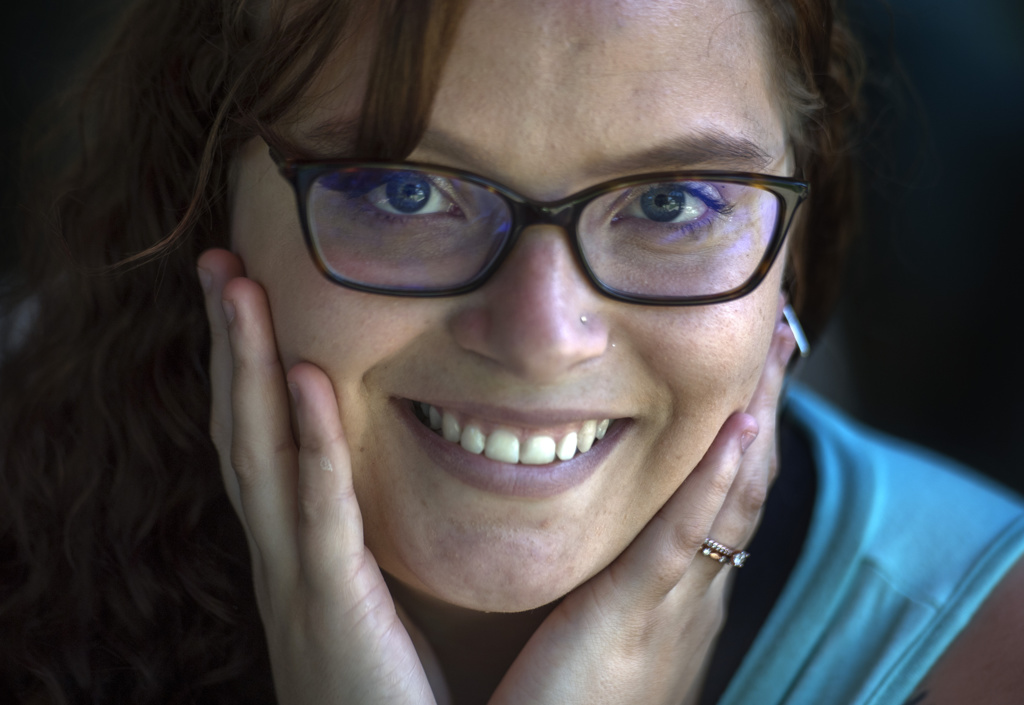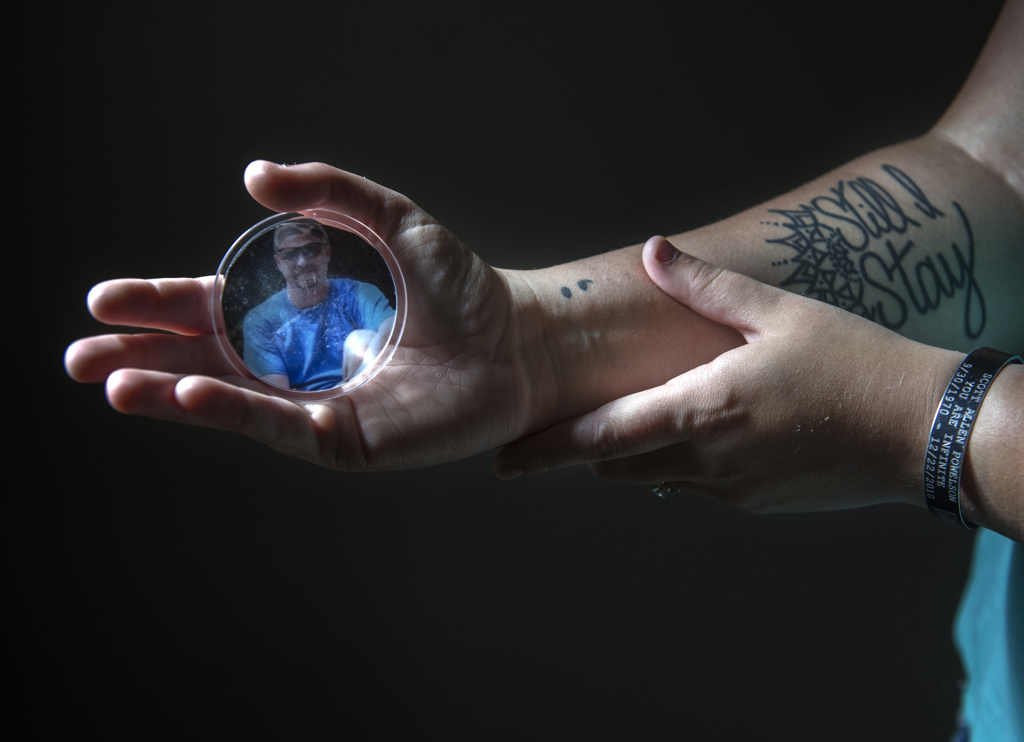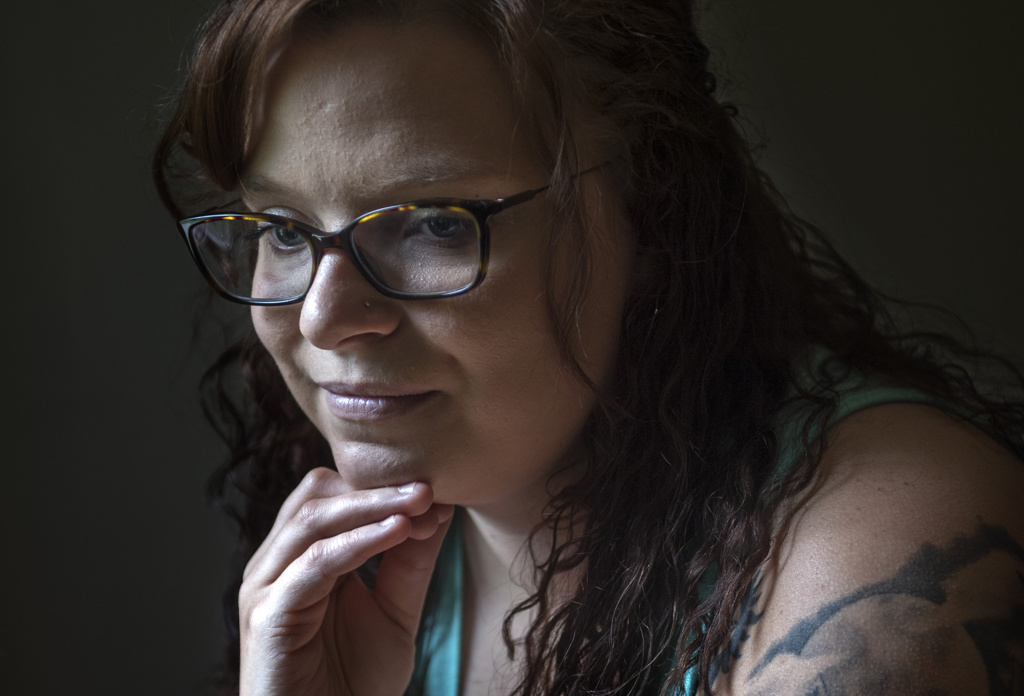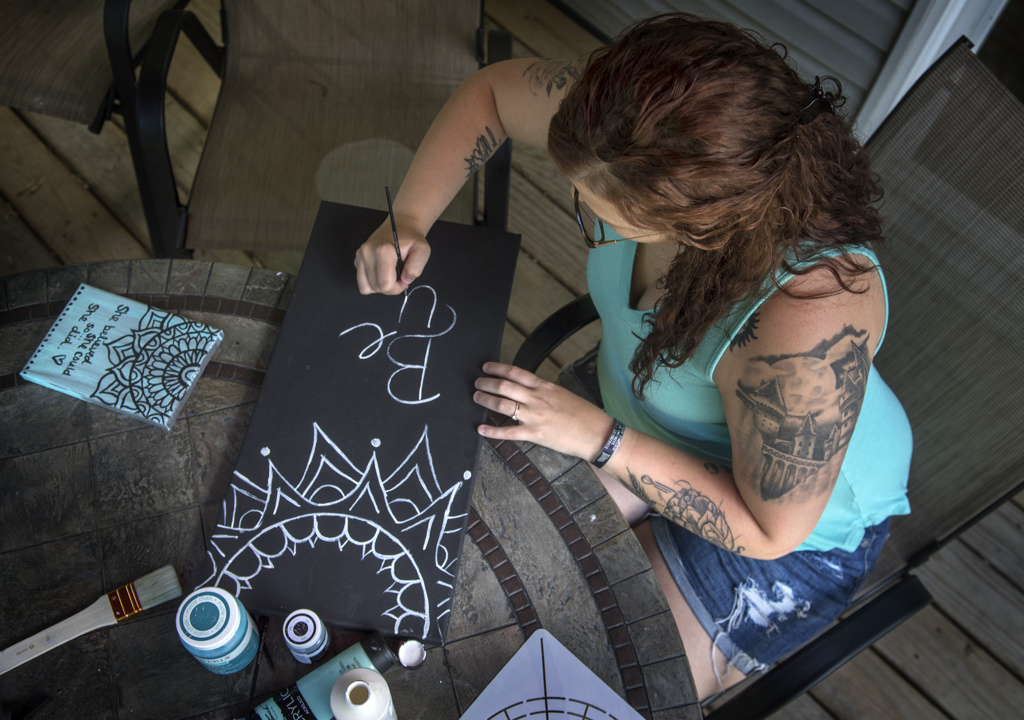Vicky Mennare is no stranger to suicide.
In 2010, as a college freshman, she lost her dad to suicide. Since then, the 27-year-old Lake Odessa, Michigan, resident has been fighting her own battle with depression and anxiety.
More than once, she spiraled into despair.
But she avoided suicide thanks to hospital stays, therapy and medication.
Mennare is not alone. And she wants others to know they aren’t alone, either.
One in five Americans are affected by mental illness every year, according to the National Alliance for Mental Health.
“I’ve spent the last 10 years of my life fighting mental illness in various forms and at various times,” she said. “I share my story because I want people to understand, and I want to educate people.”
For Mennare, a sonographer at Spectrum Health Pennock in Hastings, raising awareness is nearly a second job.
She organized an Out of the Darkness walk in mid-Michigan to raise funds for suicide awareness and prevention. She volunteers with The American Foundation for Suicide Prevention and she is involved with Zero Suicide, a suicide prevention initiative at Spectrum Health.
Depression confessions
Over a latte at a local coffee shop, there’s nothing about Mennare that draws attention to her depression.
She is attractive, well-groomed and athletic.
Only the semicolon tattoo on her inner wrist hints at her struggle. This tattoo has become the universal symbol of affirmation and solidarity against suicide, depression, addiction and other mental health issues.
“An author uses a semicolon to continue a sentence,” Mennare said. “For those of us with depression, we use it to continue life—instead of ending it.”
Mennare said her depression probably began in high school. At the time, she though it was the normal ups-and-downs of teenage life that led to cutting herself to relieve anxiety.
After her father died by suicide, Mennare spiraled out of control, abusing alcohol and medication.
“One night, I told my boyfriend (now husband), ‘I think I’m going crazy and I don’t know what to do,’” she said.
After a trip to the emergency department, doctors hospitalized her for three days, followed by a partial hospitalization program.
Medication and therapy have kept her in balance for the most part, although she hit another crisis last year.
She could barely motivate herself to get out of bed. She felt irritable, disinterested and cried for no apparent reason.
And she began having thoughts of hurting, even killing, herself.
Her family recognized the symptoms and asked her, “Are you thinking about suicide?”
“That is the scariest thing you can ask someone you love, but it’s the most important thing,” she said.
Mennare has shared her journey in a self-published Amazon book, Depression Confessions: Truths About Living with Depression.
“I wouldn’t be ashamed if my appendix ruptured and I needed a hospital stay,” she wrote. “I wouldn’t be ashamed or embarrassed if I broke my leg and needed physical therapy. So I am not ashamed of taking my medication for my brain or needing a hospital stay when I’m suicidal. I am not ashamed for needing to see a therapist once a week. These things help keep me healthy and safe.”
‘Still I stay’
When she realized she needed help last year, Mennare sought out her primary care provider, Erica Nyman, PA-C, of Spectrum Health Pennock Family Medicine – Lake Odessa.
Like many Spectrum Health providers, Nyman uses a questionnaire to screen all patients for depression.
“It’s a really great tool,” Nyman said. “Sometimes patients want to talk about their anxiety or depression, but feel embarrassed. They don’t know how to start the conversation.”
After a referral from Nyman, Mennare is back on track after another partial hospitalization program, a new therapist, different medication, healthy eating and regular exercise.
In addition, she’s turned to art as therapy, painting signs and magnets with inspirational quotes to encourage herself and others.
Her mantra, “Still I stay,” resonates through her artwork, which she sells at local craft and art fairs.
“I enjoy taking care of Vicky as a patient,” Nyman said. “I’m so proud of her and the things she is doing with suicide prevention.”
For Mennare, her work as a mental health advocate motivates her to get up every morning.
“I use my story and share it with others in the hopes that they won’t be afraid to share their stories,” she said. “Getting help is a sign of strength, not a sign of weakness.”

















 /a>
/a>
 /a>
/a>
 /a>
/a>
Thank you for sharing your journey and for fighting. My father committed suicide when I was in my young 20’s (1990) This Thursday is the one year anniversary of the loss of my mom, one of my best friends. This is week is so hard; I’m 53 and feel like a List child. I have friends with semi colons and didn’t know the meaning. I now know and will focus on that this week thanks again
Thanks for sharing. Its stories like this that break the walls of stigma and shame for others.
My spouse took his life at age 41 and we all suffered. Being open about mental health as a disease takes away the stigma. Thank you for sharing and being open.